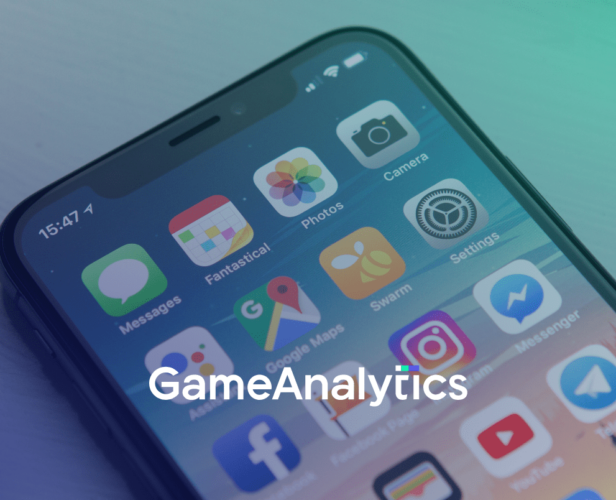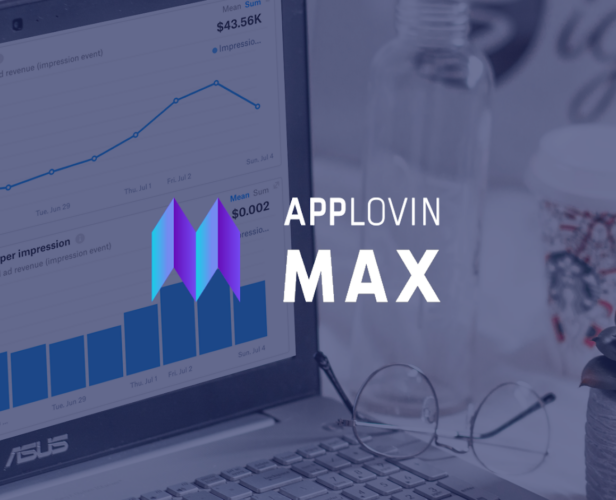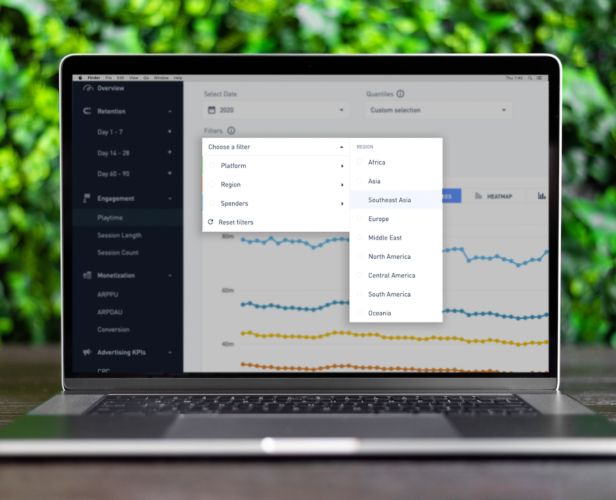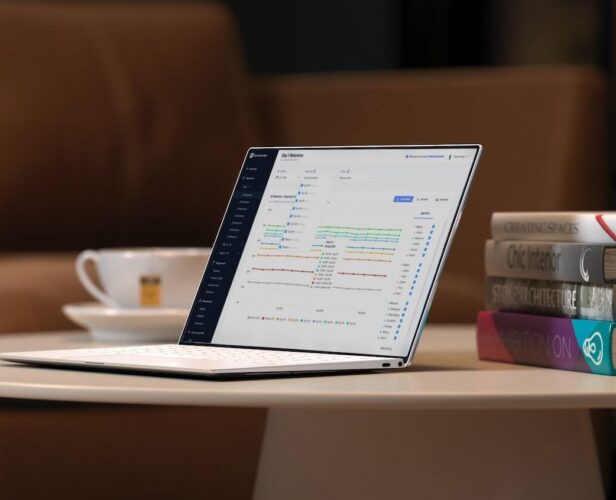Category
GameAnalytics Updates
#GameAnalytics Updates
Introducing Raw Export – A New DataSuite from GameAnalytics
Update: DataSuite features are now available in a single, affordable, bundle. Find out how to save on your data processing costs for games here. We’re all about the analytics (there’s a clue in our name), and using them to help you grow your games. And we’re always looking for ways to make data work even harder for you. So we’ve added a new service to our already-impressive roster – Raw Export. Here’s how it can help you turn your data into action. Dive even deeper With Raw Export you can automatically export all your games’ raw event data in JSON format, without any manual intervention. So every day it’ll ingest, preprocess, and deliver player data from your GameAnalytics account straight into your AWS S3 account. It even packages it into a neat and tidy compressed file containing unchanged raw events...
#Data & Analytics
iOS 14 Opt-in-Rate Is Higher for Mobile Games
Earlier this year, Apple released iOS 14.5. It was the dreaded update among all app developers, studios, and publishers. If you wanted to access a user’s mobile identifier (IDFA), you had to ask for their consent specifically. If you’re unsure why this is important, the IDFA is used for advertising purposes. When Apple released the update, almost every user needed to opt-in (rather than out), hugely impacting advertising and ad revenue. (More about this here.) But we’ve seen some interesting findings about mobile game opt-in rate. Which is what we’re going to cover in this blog. We have data on Opt-in Rates We’ve read tons of articles and blogs within the industry over the past few months. All speculating what they think the Consent Opt-in Rate would be – especially for games. And for us, we don’t need to guess...
#GameAnalytics Updates
Ad Revenue From Aequus Now in GameAnalytics
Our collection of Ad Revenue providers is growing. A couple weeks back, we were shouting about Applovin MAX being added into the mix of things. And this time, we’re thrilled to let you know that we’ve just partnered up with Aequus. Meaning you can now analyze your ad revenue from Aequus in your GameAnalytics account. Again, this is another great addition to our analytics platform. Here’s the docs to get you started. And if you want to learn exactly what this means for you, then read on. Let’s get to it. What’s new in GameAnalytics? We added support for impression-level ad revenue data from Aequus (like we did earlier for MAX, MoPub, Fyber, etc) This means you can now: query and filter data for ad revenue metrics from Aequus in the Explore Tool optimize ad revenue from Aequus using A/B...
#Case study
How Wargaming uses GameIntel to focus on successful game ideas
They could focus their efforts When testing out concepts, it’s difficult to know which ideas will be successful and which will be a waste of effort. In the past, Wargaming’s data didn’t give them quite what they needed and wasn’t particularly scalable. It also didn’t feel fair to their studios. With GameIntel, specifically metric data from Benchmarks+, they could create realistic targets for studios to reach and base their decisions off the data. They now know what KPIs are considered good, great, and downright poor in the industry for each key sub-genre, rather than just guessing. “Success isn’t always about releasing a game. It’s sometimes about shutting a game down soon enough so that you don’t waste time and money,” said Alex Nenadavets, their manager of competitive intelligence. “We’ve definitely saved time by not wasting it on ideas that wouldn’t...
#GameAnalytics Updates
Ad Revenue Data From Applovin MAX Now in GameAnalytics
A while ago, a bunch of you asked us to add Applovin MAX to the mix of ad networks we integrate with. Well, we’re thrilled to announce that we’ve crossed the finish line, and you can finally analyze your ad revenue from Applovin MAX in your GameAnalytics account. There’s now nothing stopping you from making more informed decisions around your monetization strategy. That’s the biggest news in this update. So if you’re struggling to sit still and want to get started right away, then head to our docs here to grab the integration guide and go go go. But if you fancy digging into the details, then read on. What’s new in GameAnalytics Including the news we mentioned above, here’s what’s changed in GameAnalytics and what you can expect to see next time you log in: We’ve added support for...
#GameAnalytics Updates
More Hyper-Casual Sub-Genres Have Landed to Benchmarks+
Product update: Benchmarks+ is now a part of GameIntel (25th May 2021) We’ve launched GameIntel, a new and improved mobile intelligence offering which from today will be the new home for Benchmarks+. There’s a ton of new features, functions, and capabilities you can dig into here. You can find all of the details about it here. And if you missed it, we now have trending games in our tool. ************************************************** Update from 9th Dec 2020: Clear the runway, as we’ve just rolled out an exciting new bundle of sub-genres to Benchmarks+. In our last update, we added new filtering options and more shooter genres. But for this one, the hyper-casual (HC) genre takes the stage with seven new mechanic-focused options now available. Read on to find out just what they are. Hyper-casual games are simple and often rely on just...
#GameAnalytics Updates
New Shooter Genres & S/E Asia Filter in Benchmarks+
If you’ve been keeping up with the latest Benchmarks+ buzz, then you’ll know that we recently added a huge batch of sub-genres into our tool just a few weeks ago. Now, following popular demand, we’re pleased to announce that we’ve included more shooter genres to this growing roster: ‘snipers’ and ‘tactical shooters’ (and we’re not stopping there). More details on this below 👇 A few of our users also asked for insights on Southeast Asia, which we’ve slipped in with this release, too. (The data is available from the beginning of the month, for the App Store genres only.) Again more details below. But if you’re a paying user, you can dive straight in and check the data here: This is just the start of many changes to come (with a big update coming soon). But for now, here are...
#Case study
How the devs behind Crossy Road and Shooty Skies became mobile masters
Never spend too long creating a game “For Crossy Road, we made it in 12 weeks, but we actually set out to make it in six,” says Sum. “That all meant that, if it didn’t go well, we hadn’t wasted all that much time. You just don’t know what’s going to happen on mobile. If you take six months to make a game, everything might have changed by the time it comes out.” Finding a team that gels “Every member of the team has their own skills that complement each other,” Sum is keen to note. “Matt Ditton handles a lot of the business side, but he’s a technical programmer too. Whereas Ben is really technically awesome and led the development of Shooty Skies.” Even though they now have a bigger team, Sum said his goal was to create “something...
#Data & Analytics
2020 in Metrics: Understanding Casual and Hypercasual Gaming Markets
2020’s been a year like no other. Casual and hypercasual gaming has fared better than most industries – overall playtime has been consistently up by around 15% on previous years. But when all of our usual social norms have been upended by global lockdowns, how do we make sense of the player metrics we rely on? I recently hosted a webinar on this topic. Using Benchmarks+ from GameAnalytics, I pulled some of the most telling player data from the first eight months of 2020. I dived into the key metrics like retention, session lengths, and playtime. And I did a deep dive specifically on hypercasual – comparing the different app stores and regions. Here’s a summary of the trends I found that will be most useful for developers to understand. The differences between iOS and Android It’s important not to...
#Data & Analytics
Lessons from Lockdown: Making Casual Games in a Covid-19 World
In September we ran the first webinar in our Toolbox series: making casual games in a Covid-19 world. Joined by our friends at Adjust and TopOn, we covered what we’ve spotted, how to grow your casual game and how to advertise during the pandemic. Don’t worry if you missed it. You can catch the recordings and read up on the talks in this blog. It’s been an odd few months. Over that time, we’ve noticed a dramatic shift in the gaming industry: we’ve never seen so much playtime, traffic is at an all-time high and some countries have really surprised us. So we thought it’d be worth sharing the key metrics and banding together with Adjust and TopOn to give you some advice on how to make sure it’s your game beneath those idle thumbs. The webinar had three main...
#Data & Analytics
What’s Their Secret? 4 Steps Successful Publishers Take to Find Hit Games
We’ve all asked ourselves this question: “How do publishers release hit game after hit game? How do they know which ones are going to be successful?”. Now, we don’t know all the ingredients to their secret sauce (be it their relationships with developers, network, or UA tools). But what we can do is go over what we know, and what we do best. Data. Data is a crucial part in finding the next big hit. But sifting through tens or hundreds of prototypes at one time is in itself, a massive challenge. Especially when your team is small. Step 1: Find more prototypes to evaluate In an ideal world, you’d open up your laptop and see key metrics (like day 1 retention, day 7, and Playtime) for a bunch of new games that were submitted yesterday. Well, you can. And...
#GameAnalytics Updates
Will GameAnalytics work in iOS 14? Yes, and this is why
In Apple’s most recent WWDC privacy was a key topic. One of the big reveals in this area was that come September, when iOS 14 is released, users will be asked if they would like to allow or restrict data sharing per app. After this, the question on many developers’ minds is… What happens to my analytics? Will my reporting still work or will it be restricted? The answer, for GameAnalytics, is yes! Here is why. All our SDKs are ready for this (and have been for years) GameAnalytics always determines an identifier for each device that is sending data from a game. We call this the GameAnalytics User ID. This value is normally a device identifier (like IDFA on iOS), but when this is not available a random User ID is generated and used on all future data for...
#GameAnalytics Updates
Supporting BAME game dev teams with industry insights
A few days ago, we issued a statement mentioning that we are willing to do our part to support the black community, as well as other ethnic minorities. Since then, we’ve been discussing ways to do this, not just now in the short term, but on an ongoing basis. We are a small company, but something we do have plenty of is data and insights. We also have a wonderful community of talented indie game developers from around the world, who are working very hard to get their first hit. Knowing which mechanics, genre, or publisher to pick can make a massive difference in a prototype’s success, and insights are essential to that decision process. We put two and two together and we’ve decided to offer up to 12 months free access to our premium insights service, Benchmarks+, for indie...













